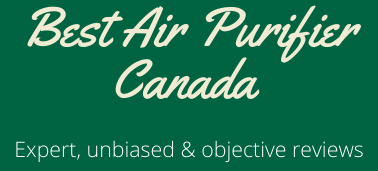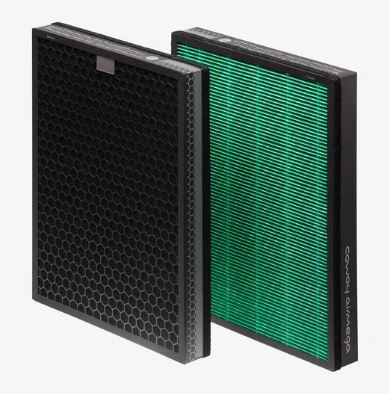Air purifiers come in different brands, models, colors, sizes, and most importantly with different filters. Air filters trap pollutants like dust, pollen, smoke, gases, allergens, and bacteria from indoor air.
If you are buying an air purifier for the first time, settling for a device with the right air filters for your needs might be a daunting task. But worry no more because we are going to discuss everything you need to know about different types of air filters below.
What are the Types of Air Purifier Filters?
Just before we get into the different types of air filters and what they do, note that for the right purchase you must be aware of the main air pollutants you want to eliminate from your space. This is because different air filters are ideal for different air pollution needs. Read on.
Pre-filters
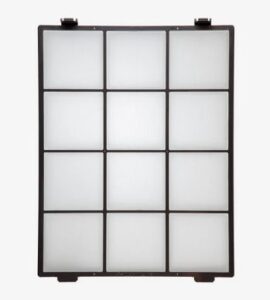
As the name suggests, air passes through the pre-filter before it goes to the main filter of the air purifier. So, pre-filters are essential in capturing large particles while the main filter takes care of the tiny ones.
HEPA filters
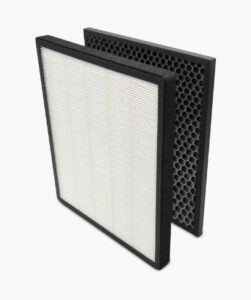
HEPA stands for High-Efficiency Particulate Air. HEPA filters consist of multiple layers of high dense air filter material and they capture up to 99.97 % of particles. So, pollutants even as small as 0.3 microns in diameter are no match for HEPA filters.
If you have been researching air purifiers, you must have come across HEPA in many instances. This is because HEPA is among the first air filters on the air purifier market and up to date they are the most common.
HEPA filters are most effective in capturing particles like dust, pollen, allergens, mold spores, pet dander, and even hair. The filters get clogged with particles and they should be replaced after a year to maintain efficiency. However, the replacement frequency depends on usage.
Due to its popularity, you will come across many air purifiers marked HEPA (or True HEPA). So, if you are not careful you might buy a fake HEPA air purifier. The original certified label should read True HEPA filter. Of course, a fake HEPA air purifier will not eliminate all pollutants.
Pros
- Highly effective since they capture up to 99.97% of airborne particles
- Trapped particles stay inside the air purifier. They do not blow back into the air
- They do not emit harmful products like ozone
Cons
- They are high maintenance because they require regular replacement
- HEPA filters are not ideal for eliminating odors
Activated carbon filters
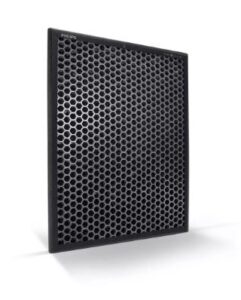
Activated carbon filters are also known as activated charcoal filters. They use a form of carbon that has millions of tiny pores making it highly porous and gives it a large surface area for absorption.
Activated carbon filters effectively absorb and neutralize odors, smoke, VOCs, and other chemicals. Once these impurities are trapped, they cannot be released into the air hence canceling chances of recontamination. If you go through our best air purifiers in Canada reviews, you’ll notice that most have activated carbon or charcoal.
While activated carbon filters are the best in removing air pollutants at the molecular level, they do not remove airborne particles and allergens from the air. Therefore, they should be used together with other air filters like HEPA for full air cleanup.
Pros
- Activated carbon filters can be reused
- They remove particles that cause odors leaving your house smelling fresh and clean
Cons
- High maintenance since they require replacement after six months depending on usage
- They need to be used in conjunction with other filters
Ionizers
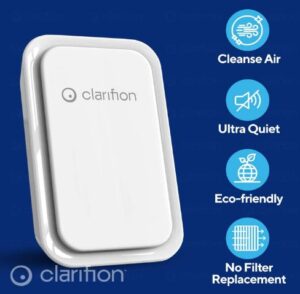
Ionic air purifiers release negatively charged ions in the air which in turn attract positively charged air contaminants. The formed particles become too heavy to float in the air, so they drop on solid items in the room. Therefore, to get rid of them, you should wipe the surfaces often.
This process works on particles as small as 0.1 microns. Although this technology can trap even the smallest of particles, it is less effective than other technologies.
Ionic air purifiers do not eliminate air pollutants from the air but transfer them onto surfaces in the room. So, with time, the particles can become loose again and contaminate the space. Also, you will keep on wiping your surfaces which can be tiring.
Another downside is that ionizers produce some levels of ozone which is harmful when inhaled.
Pros
- Ionizers do not use physical filters making them maintenance-free
- They remove some bacteria and germs hence preventing diseases and illnesses
Cons
- They do not get rid of odors
- Ionizers emit some ozone which can be harmful to human health
UV light
Ultraviolet air filters emit UV light contained in a lamp inside the air purifier to attack bacteria and viruses in the air. Since they do not capture other air pollutants they are most effective when used in conjunction with other filters.
When the microorganisms are exposed to UV light, their DNA or cellular composition is attacked resulting in the killing or inactivation of the germs. Also, the UV light does not cause harm to humans hence safe for indoor use.
Note that for the UV light to work it must be strong enough and it should be on for a long time. Also, the UV lamp should be replaced according to the manufacturer’s recommendation for efficiency.
If you are shopping for an air purifier for a highly sterile environment like hospitals, dental clinics, or daycares, UV light air purifiers are highly recommended.
Pros
- They kill bacteria and viruses
- Help in the prevention of sicknesses and illness
- They do not produce harmful by-products
Cons
- They do not remove other particles from the air
- They must be used in combination with other air filters
- Frequent changing of the UV lamp proves expensive in the long run
Ozone filters
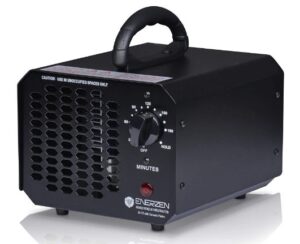
Ozone air purifiers remove pollutants in the air by emitting ozone which combines with particles in the air making them too heavy to continue floating. Just like ionizers, this technology does not get rid of contaminants in the air but only masks it.
Although ozone air purifier manufacturers claim that the ozone level is safe, health professionals do not recommend this device for indoor use. Ozone spikes asthma symptoms and long-term exposure scars the lungs.
Research shows that ozone can prevent the growth of certain germs in the air. However, for effectiveness, it should be used in higher concentrations which are not safe for human consumption.
Pros
- Kills microorganisms in the air
Cons
- Produces ozone which is not safe when inhaled
- This technology does not fully clean the air but only masks it
- Ignites asthma and other respiratory disease symptoms
Conclusion
Buying an air purifier should not be a hard task especially with the right information. There are very many air purifiers and they use different technologies and filters to purify indoor air. Apart from a pre-filter, a good air purifier must also have a HEPA filter or an activated carbon filter.
Therefore, to choose the right device for your needs, you must identify your air purification needs and understand what different air purification technologies do.
From the text above, HEPA filters are the most common and effective, but they do not remove odors. To get 100% air purification you should use them together with activated carbon filters. This tells you that the technologies are not always effective on their own.
It is also important to be aware of technologies that might be harmful to your health like Ozone and Ionizers.
